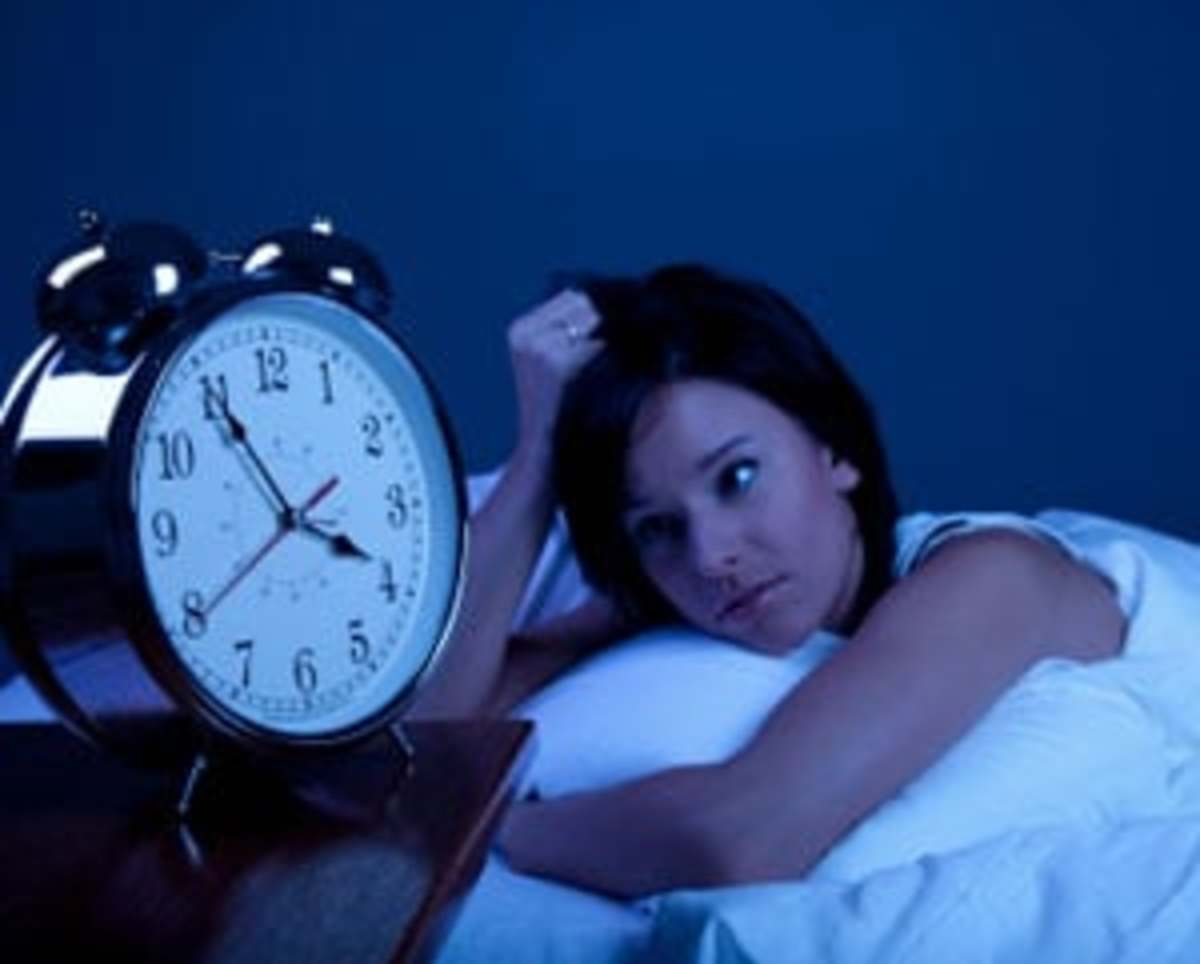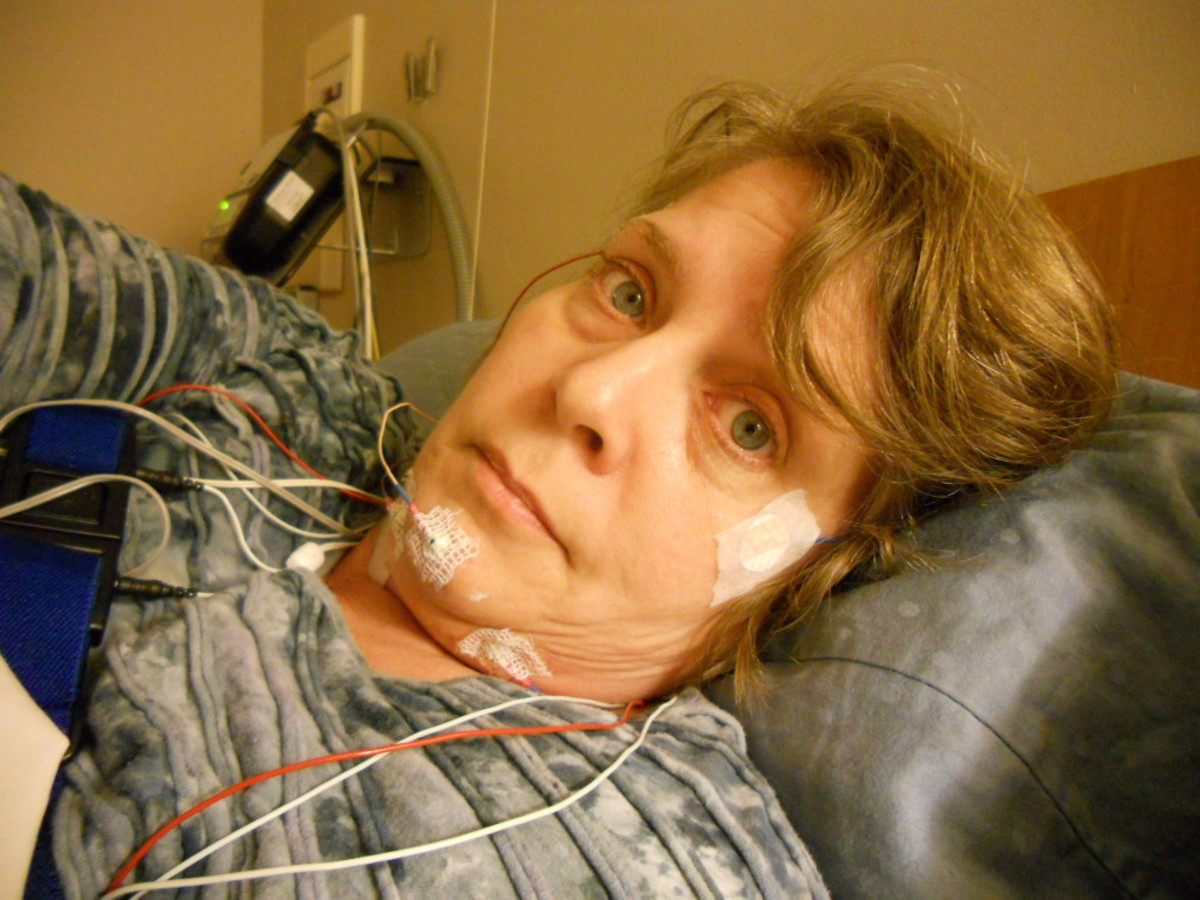How to Recover from Insomnia and Lost Sleep
Can You "Make Up" Lost Hours of Sleep?

Sleep Deprivation Can Harm You
There are few things more miserable than a night spent tossing and turning.
Aside from the annoyances, though, your health can suffer in many ways if sleepless nights are the norm for you rather than a rarity.
If you suffer from a loss of sleep, and it if has lasted more than just a few nights, you should examine the possible causes and correct the problems before you begin seeing health issues.
For many people, a few easy tips can bring back the snoozes and help you awake feeling rested. Others, though, might need medical help either temporarily or longterm.
Either way, tackle the problem before it creates issues with weight gain, tension, daytime fatigue and even worse symptoms.
How Do You Recover Lost Sleep?
Anyone who has gone several nights without sleep knows you indeed feel better once you're finally able to relax and drift off to dreamland.
But many experts say there's no such thing as 'getting back' the sleep you have lost. This doesn't mean you can't recover and move forward with energy, it just means your body won't somehow 'restore' the sleep you didn't get on those nights when you wanted to scream and throw your pillow.
You can, however, get on a new sleep schedule and either retrain your body to sleep soundly or find solutions, in most cases, for insomnia.
How a Lack of Sleep Hurts Us
What About You?
Do you have trouble sleeping?
What Causes Insomnia?
If you're still playing detective to find out why you're not sleeping, start by looking for obvious issues.
Did your surroundings in your bedroom change in some manner? Something as simple as adding a television (which, in the long run, may not serve you all that well in a bedroom, but that's another story) or a digital clock can create havoc for your sleep.
Almost every electronic device now has an LED lighted clock and panel. These lights seem unobtrusive, but researchers have decided this tiny bit of extra light during the hours when we normally sleep can cause problems.
Many pilots (who travel through various timezones and constantly work on 'catching up' on their sleep) habitually cover the LED display on hotel clocks. Actually, I do that as well - I learned years ago that those blue or red numerals kept me awake at night. So I now cover the LED displays on televisions or clocks in my bedroom and when I travel. It's made a world of difference!
Have you started watching a new program in the evening? Or spending a bit more time on the computer before you go to bed. That concentrated dose of light, from the screen, does something to your internal clock and helps keep you awake even after you shut things down and hit the bed.
Examine your eating habits and decide whether a change in timing or menu choices might be the problem.
Are you spending hours in bed going over the day at work, or the big project that's coming up? Or are you fretting over relationship issues? Maybe it's time to get counseling on stress relief, or to make a list of things you'll deal with the next morning. Scarlett O'Hara was no dummy when she reminded herself, "Tomorrow's another day!"
What are your exercise habits? Too much exercise late in the day can keep you awake. And, in contrast, not getting enough exercise can also interrupt your sleep patterns.
If you've gone over these suggestions and you're still spending time staring at the ceiling each night, consider asking your physician for advice. He or she may recommend a sleep study, or suggest using a mild sedative for a short period of time.
How to Retrain Your Body to Fall Asleep Fast
How to Get a Good Night's Sleep
Once you find out the core problem, you'll need to manage your habits and health in order to get back to a pattern of sleep that restores you each night.
If you aren't exercising, add exercise to your day, even in small doses. This will help your body's circulation and increase your daytime energy. Which, in turn, will make your body want to relax and rest when you hug the pillow at night.
Make your bedroom your haven of rest, and consider moving distractions such as televisions, computers or other brain drains into another room.
Don't read in bed - this keeps your eyes open and requires a nearby light. Read in another room, and when you're tired, put the book down and tell your body it's time for bed.
If you're tossing and turning, go ahead and get up for a while to see if you can reset your body and allow sleepiness to return.
Meditation and yoga have helped many people learn to put their minds in a peaceful place and rid their thoughts of nerve-wracking distractions.
Pamper yourself in the evening with a hot soak in the tub, or scented oils, and buy the most luxurious sheets you can afford to make your bed all the more tempting. One word of caution: If candles are one of your favorite ways to create a relaxing mood, DO NOT leave them burning while you go to bed. Too dangerous. In every way.
Make your bedtime a serene moment in the day, and give your body some signals that tells it to let go of outside worries, and you'll have a good chance of sleeping like a baby again sometime soon.








